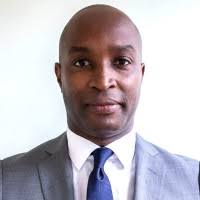By Srushti Hode
How SDG 16 Could Be the Key to Peace, Justice, and Good Governance
London(London Post)— In a region where democratic progress is fragile and often reversed, Guinea-Bissau represents a complex paradox—rich in natural resources, yet chronically unstable. The West African nation has endured five coups over four decades, and each attempt at reform has been undermined by political infighting, institutional weakness, and a lack of public trust.
But there may be a way forward—and it begins with the United Nations’ Sustainable Development Goal 16 (SDG 16): Peace, Justice, and Strong Institutions. For Guinea-Bissau, this is not just an aspirational goal—it is a survival strategy. (P-03)|JAPANESE|TURKISH|CHINESE|
A Call for Political Renewal

The London Post spoke to Mr. João Bernardo Vieira, former Minister of Transport and Telecommunications of Guinea-Bissau and nephew of the nation’s first democratically elected President, João Bernardo Vieira (known as “Nino”). The elder Vieira, a key figure in Guinea-Bissau’s liberation struggle, proclaimed the country’s independence from Portuguese colonial rule on September 24, 1973.
Mr. João Bernardo Vieira, a seasoned political leader with over two decades of experience in national governance and policy making, has emerged as a pivotal advocate for democratic reform and institutional resilience in Guinea-Bissau. He outlined urgent priorities to stabilize the West African nation, which continues to grapple with political turbulence and public distrust.
“The most critical task is restoring citizens’ faith in the state,” Vieira asserted. “This demands an independent judiciary, uncompromising anti-corruption measures, and security forces equipped to serve the people with professionalism and dignity.”
Rejecting external impositions of peace, Vieira stressed that lasting stability must be homegrown. “Peace hinges on internal consensus—open dialogue among political factions and unwavering respect for constitutional order,” he said. Highlighting the need for inclusive justice, he called for streamlined legal processes, decentralized public services, and free legal assistance for marginalized groups, particularly women, children, and rural populations. “Justice cannot remain an urban privilege,” he added.
A Nation at a Crossroads
As someone deeply involved in international electoral strategy, I see Guinea-Bissau as
standing on a precipice. Poverty is widespread, with more than 68% of people living on less
than $1.95 per day—a stark increase from 56.6% in 2002. This is not just an economic crisis; it is a governance crisis.
The justice system is underfunded, politically influenced, and often inaccessible. In rural
areas, many people lack even a legal identity. Only one in four children is officially
registered at birth—effectively locking millions out of education, healthcare, and civil rights.
Women and youth—the country’s majority—are sidelined from leadership and decision
making. Gender-based violence is rampant, and very few perpetrators are held accountable.
Corruption is endemic, weakening the very services that should protect the public.
SDG 16, if implemented seriously, can reverse this tide. It offers a framework for real
change:
• Strengthening the independence of the judiciary
• Fighting corruption with enforceable laws
• Protecting freedom of speech and civic engagement
• Building mechanisms for peaceful conflict resolution
• Ensuring equal access to justice and civil documentation
Strong institutions do more than protect rights—they unlock development. A transparent
and fair government ensures that resources reach the people who need them most. Girls
stay in school. Women live without fear. Young people find jobs and purpose. Investment,
both local and foreign, begins to flow into a legally stable environment.
Why Stability in Guinea-Bissau Matters
Guinea-Bissau may be small, but its instability has regional consequences. Often referred to as a “narco-state,” it has become a transit hub for international drug trafficking, which
further corrupts institutions and undermines public order. If reforms are delayed any longer,
the fallout could destabilize the broader West African region.
The upcoming presidential elections on November 30, 2025, present a unique
opportunity—a chance to reset the nation’s trajectory. If these elections are free, fair, and
peaceful, they can rekindle public trust, affirm Guinea-Bissau’s democratic potential, and
give the international community confidence in its future.
As Mr. Vieira aptly concluded:
“Only when the State is trusted, fair, and protective can Guinea-Bissau hope to build a stable and prosperous future.”
SDG 16 in Action: Lessons from abroad
Rwanda and Ghana offer instructive examples. Post-genocide Rwanda prioritized judicial reforms and anti-corruption courts, climbing from 121st to 51st on Transparency International’s index since 2000. Ghana’s digitization of land registries and court processes reduced bureaucratic graft by 40%, per the World Justice Project.
For Guinea-Bissau, such measures could unlock development. Transparent governance would channel cashew revenues into healthcare and schools, while legal identity programs could empower women and rural citizens. “Strong institutions don’t just protect rights—they catalyze progress,” said UN Deputy Secretary-General Amina Mohammed.
Final thoughts:
Guinea-Bissau is at a crossroads. The road ahead is difficult, but not impossible. With
political courage, regional cooperation, and a committed implementation of SDG 16, this
fragile state can be transformed into a resilient democracy.
The blueprint is already written—what’s needed now is the collective will to bring it to life.
This article is produced to you by London Post, in collaboration with INPS Japan and Soka Gakkai International, in consultative status with UN ECOSOC.




